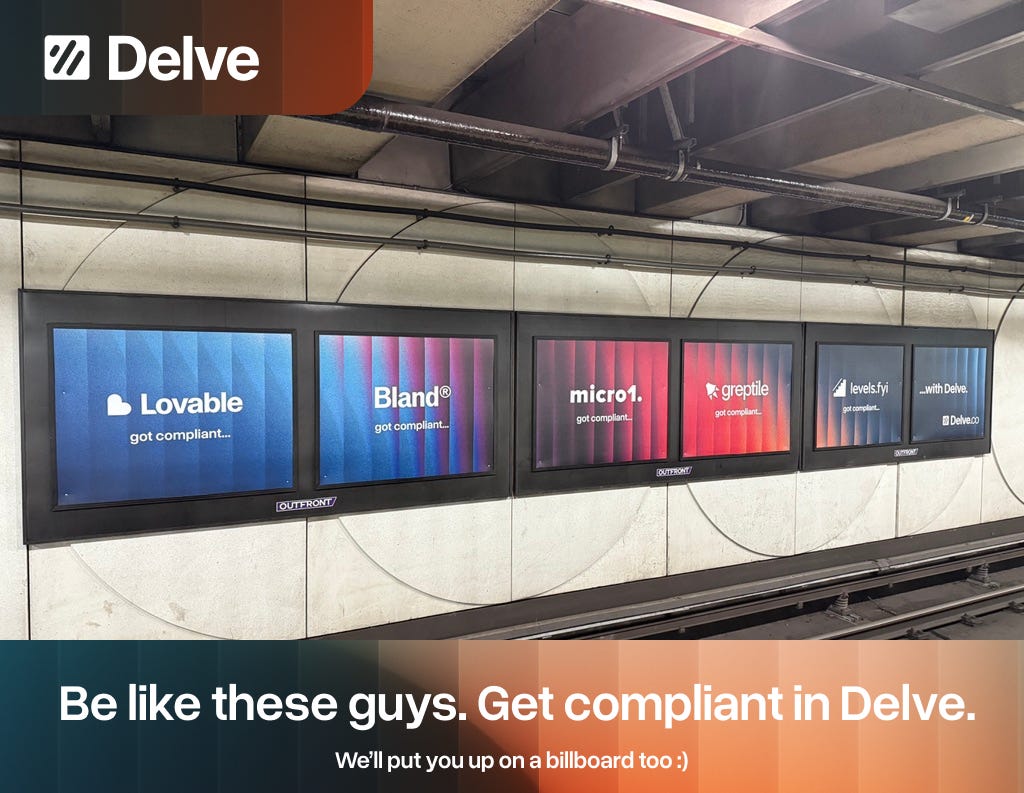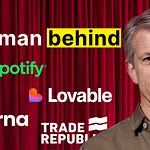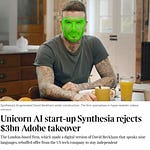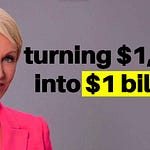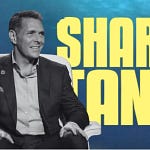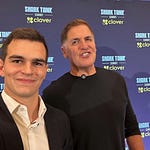Robert Herjavec’s story sounds like something out of a movie. He was born in Communist Yugoslavia, his family fled to Canada with nothing, and they spent over a year living in a basement. He was eight years old, barely spoke English, and watched his parents struggle to get by.
Today, he is one of the most successful immigrant entrepreneurs in North America. He built and sold multiple technology companies, created one of the world’s leading cybersecurity firms, and became a household name as a Shark Tank investor. His fortune is estimated at more than 600 million dollars.
What makes Robert’s story powerful is not only the rags-to-riches arc. It is how he built everything: with relentless work ethic, with a gift for storytelling, and with a deep understanding of how to use media to multiply opportunity.
Guillermo Flor and I sat down with him at the Clover x Shark Tank Summit in Las Vegas to talk about money, startups, artificial intelligence, and how to scale. Beyond the lessons, what stood out was Robert’s clarity. He speaks in stories that stick with you. He is a natural storyteller, and that is one of the reasons he has been able to win at every stage.
Brought to you by Delve: Don’t Let SOC 2 Kill Your Startup.
One startup hit growth mode—until a prospect asked for SOC 2. They chose a big platform: endless tasks, engineers stuck, deals stalled. Competitors swooped in.
Those competitors used Delve. 15 hours later, audit-ready, deal closed!
Delve automates SOC 2, ISO 27001, HIPAA, GDPR, PCI-DSS & more—ready in days, not months. Today, compliance is done in Delve.
Book a demo, Use VCCORNER1KOFF for 1K off:
From Immigrant to Entrepreneur
When Robert was eight years old, his family escaped Communist Yugoslavia and landed in Canada with nothing. He took any job he could find. He delivered newspapers, waited tables, and then got a chance in technology through an unpaid internship.
That start led him to build BRAK Systems, which he launched from his basement and later sold for 30 million dollars. He went on to found The Herjavec Group, now known as Cyderes, which grew into a global cybersecurity powerhouse.
On Shark Tank, millions saw what had already defined his life: a mix of grit, resilience, and straight-talking advice shaped by his immigrant background.
He told us something unforgettable:
“The pain of being poor was greater than the pain of failure, rejection, or working 20-hour days”
That choice — to endure the hard work instead of the pain of poverty — became the foundation of his career.
Lessons for Founders
Here are the biggest takeaways from our conversation:
Artificial intelligence is not optional. Robert believes that AI is now simplifying every business process. If you are not using it for the fundamentals, you will fall behind. At the same time, because AI makes it easier to copy, branding and storytelling have become even more valuable.
Sell yourself first. On Shark Tank, many founders start by pitching their product. Robert says the mistake is forgetting that business is a human connection. If you do not build trust with the investor or the customer, the product will not matter.
Adaptability matters more than the plan. The best founders are not the ones with the perfect strategy. They are the ones who adapt when markets shift and competitors appear.
The biggest AI opportunity is infrastructure. Consumer apps get the headlines, but Robert argues that the long-term winners are building the data and infrastructure layers that power everything else.
Making money is hard for a reason. Salaries provide income, but building capital is the challenge. Robert framed it as a personal decision. Which pain are you willing to live with: poverty, regret, or long hours? For him, the answer was simple: he would rather face rejection and long days than stay poor.
Media is leverage. Shark Tank gave Robert massive visibility, but he reminded us that even in an online-first world, traditional media still matters. Content creates awareness, but books, television, and mainstream press create credibility.
Why His Story Still Inspires
What struck me most about Robert was not the scale of his wealth but the clarity of his storytelling. Every piece of advice came wrapped in a narrative. He knows that stories move people, and people build companies.
For founders, his story is a reminder that:
Your background does not set your ceiling.
Branding and media are not optional; they compound over time.
Resilience is not about never failing, but about improving with every failure.
Final Takeaway
Robert Herjavec escaped poverty through relentless work, smart storytelling, and a willingness to adapt. He turned rejection into momentum, media into leverage, and cybersecurity into a billion-dollar opportunity.
In a world where many startups chase hype, his story is proof that fundamentals still matter most: trust, grit, branding, and focus.
Next, we will interview billionaire shark Mark Cuban and the mytical Barbara Corcoran. What should we ask them?
🛠️Startup resources you may find helpful:
✅ SaaS MRR Projection Model
✅ IRR vs Return Multiple Explained + Template
✅ The Headcount Planning Module
✅ CLTV vs CAC Ratio Excel Model
✅ VCs Due Diligence Excel Template
✅ SaaS Financial Model
✅ Cap Table at Series A & B
✅ The Startup MIS Template: A Excel Dashboard to Track Your Key Metrics
✅ The Go-To Pricing Guide for Early-Stage Founders + Toolkit
✅ DCF Valuation Method Template: A Practical Guide for Founders
✅ How Much Are Your Startup Stock Options Really Worth?
✅ 2,500+ Angel Investors Backing AI & SaaS Startups
✅ Cap Table Mastery: How to Manage Startup Equity from Seed to Series C
✅ 300+ VCs That Accept Cold Pitches — No Warm Intro Needed
✅ 50 Game-Changing AI Agent Startup Ideas for 2025
✅ 144 Family Offices That Cut Pre-Seed Checks
✅ 89 Best Startup Essays by Top VCs and Founders (Paul Graham, Naval, Altman…)
✅ The Ultimate Startup Data Room Template (VC-Ready & Founder-Proven)
✅ The Startup Founder’s Guide to Financial Modeling (7 templates included)
✅ SAFE Note Dilution: How to Calculate & Protect Your Equity (+ Cap Table Template)
✅ 400+ Seed VCs Backing Startups in the US & Europe
✅ The Best 23 Accelerators Worldwide for Rapid Growth
✅ AI Co-Pilots Every Startup & VC Needs in Their Toolbox



